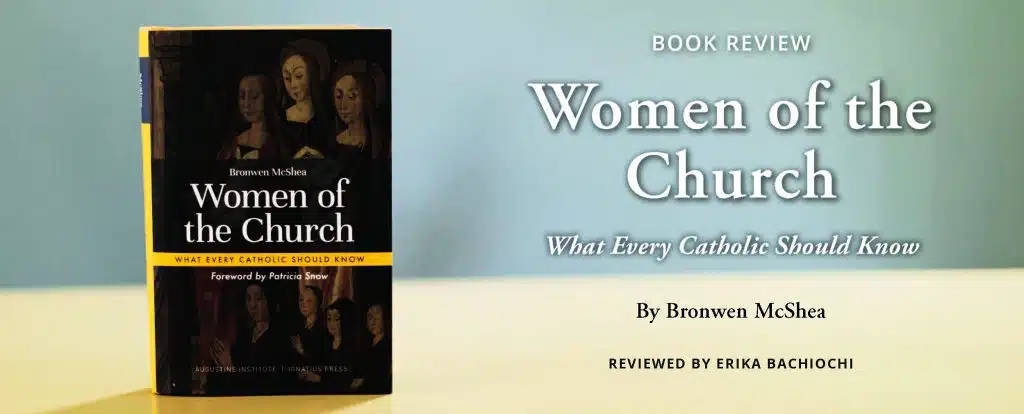Book Review: Women of the Church
 The first woman writer to make a living by her own pen, Christine de Pizan published The Book of the City of Ladies in 1405. A devout Catholic widow and mother of three young children, she wrote under the generous patronage of both the crown and nobility of the French court. The City of Ladies featured dozens of accounts of virtuous women, historical and mythical, who defied then- prominent courtly portrayals of women as lacking in judgment and “wholly given up to vice.” The work was Pizan’s book-length entry into the “querrelle de femmes,” the first literary debate on the “woman question.” Well-received in Pizan’s lifetime, The City of Ladies was read by the first generation of women to play an active role in public life.
The first woman writer to make a living by her own pen, Christine de Pizan published The Book of the City of Ladies in 1405. A devout Catholic widow and mother of three young children, she wrote under the generous patronage of both the crown and nobility of the French court. The City of Ladies featured dozens of accounts of virtuous women, historical and mythical, who defied then- prominent courtly portrayals of women as lacking in judgment and “wholly given up to vice.” The work was Pizan’s book-length entry into the “querrelle de femmes,” the first literary debate on the “woman question.” Well-received in Pizan’s lifetime, The City of Ladies was read by the first generation of women to play an active role in public life.
One might think women do not need such a defense today, but given modern feminism’s penchant for careerism, its decades- long imitation of the basest of male sexual exploits and, now at its apogee, the erasure of women in transgender ideology, a defense of women may well be needed after all. Indeed, what else are contemporary “gender wars” but a kind of reigniting of the centuries-long “querrelle de femmes”—a public debate about women’s nature, status and role in society.
Bronwen McShea’s new book, Women of the Church: What Every Catholic Should Know, does not read as an entry into these current debates, nor even as a defense of women per se. But at a time when spirited women of faith have few to defend them, McShea’s catalog of faith-filled Catholic women and their historically transformative influence is a welcome contribution.
Women of the Church provides rich sketches about many female saints and doctors of the Church already well known to us. Interspersed with accounts of culture-shaping influence by beloved saints like Hildegard of Bingen and Clare of Assisi, McShea reveals animated descriptions of queens, abbesses, ntellectuals, social reformers and ordinary women of lively faith who are not Catholic household names but tremendously impacted the course of human history.
Like Pizan’s City of Ladies, an accounting for such a diverse array of influential women of faith is not intended to inspire women to seek “power” or “influence,” but rather, McShea says, to inspire the Church anew with a rich treasury of feminine exemplars: women who lived their faith heroically in complex historical circumstances and were graced with the courage to obey God’s commands rather than man’s. “God worked with their particular frailties and potentialities,” she writes in her book’s Preface, “purifying and elevating them and uniting them to Himself …. [making] them … more truly themselves, more wonderfully what He intended them to be, from and for all eternity.”
As in Pizan’s collection of virtuous women, the humble and God-fearing women in Women of the Church are not always “gentle” or “submissive,” as some think “feminine” women ought always be. Rather than conform to a predetermined caricature of femininity, the women McShea describes find their strength, purpose and feminine identity right where God inspired them to be: on their knees at prayer.
Thus will their feminine songs resound melodiously throughout eternity; and hopefully, because of McShea’s beautiful book, a bit more energetically in our own personal histories. Erika Bachiochi is a Fellow at the Ethics and Public Policy Center.
Bronwen McShea, Women of the Church (What Every Catholic Should Know). Ignatius Press (2024). 224 Pages. $24.95 (hardcover); $16.95 (paperback).













